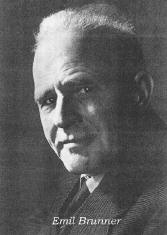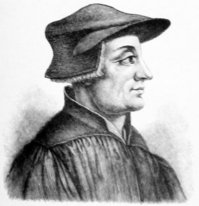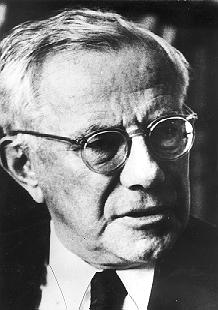by Kim Fabricius and Ben Myers
Here's a sequel to our recent batch of
theological graffiti. This brings it to a total of 75 modern theologians. Phew, I think we need a break (for goodness sake!) from rhyming.
Marilyn McCord Adams:
Her book about Ockham
Was simply stupendous;
Her next book, horrendous.
Ray S. Anderson,
Scholarly parson,
Sent me letters and books from LA.
When he died, I was silent all day.
Hans Urs von Balthasar
Really raised the bar,
From
descensus, to drama, to logic – higher and higher –
With a leg-up from Adrienne von Speyr.
G. C. Berkouwer
Spent many an hour
With Calvin; but even more, I think,
With Bavinck.
Leonardo Boff
Attacked capitalist toffs
And proposed the preferential option.
“Denied!” cried the pope, as a Marxist concoction.
Emil Brunner
Would sooner
Die than admit his celebrity status was just part and parcel
Of receiving a
Nein postmarked Basel.
George Carey,
Rowan’s snide sniper of an adversary –
Oops! – a mistake:
A theologian? Give me a break!
D. A. Carson,
The evangelical’s evangelical bar none,
Is unflagging in nagging and nagging
About God’s postmodernist gagging.
James Cone
Rose from the valley of dry, black bones
To become a theology professor –
And blaspheme the God of the oppressor.
Peter Enns
Was told by his friends
At Westminster: “It’s not personal, Pete, we love you and all –
Just put on this blindfold and stand by the wall.”
Billy Graham
Was a bit of a ham,
And on hellfire and empire he went way awry.
But he was such a nice guy.
Adolf von Harnack
Rather liked the fact
That all of Europe revered him. Except for one impudent
Student.
John Hick
Is a bit of a ...
Hmm, this one time
I can’t think of a rhyme.
George Hunsinger
Ordered a burger.
The girl at the counter replied:
“Would you like any Frei?”
Nate Kerr
Has caused quite a stir
With his book on apocalyptic.
Tim LaHaye, however, is apopleptic.
George Lindbeck,
Seeing doctrine all in a wreck,
Rebuilt, not wielding a Nietzschean hammer,
But a Wittgensteinian grammar.
Alister McGrath
Writes so very fast,
Making colleagues look word-shy and shiftless,
With his output so prodigious it’s ridiculous.
Brian McLaren,
Not to be mistaken for Rick Warren,
Is thankfully not purpose-driven,
But likewise, theologically, needs to be generously forgiven.
Jean-Luc Marion
Phenomenally continues to carry on
Semester after semester after semester
About
Dieu sans l’être.
Thomas Merton
Peacefully put a healing hurt on
The church and the world as sociopaths.
Then he took a bath.
Bishop Lesslie Newbigin,
His likes unlikely soon to be seen again,
Could say in perfect Tamil,
“The postmodern West has the grace of a camel.”
Rudolf Otto
Got perfectly blotto
And saw – how delightful, how luminous! –
That the whole world is smiling and numinous.
Jaroslav Pelikan
Opened a can
Of Worms when he divorced Luther
And moved in with Byzantine (who was older, but cuter).
Clark Pinnock
Had his third glass of arrack,
Then made his friends a bet:
He’d dream up a doctrine even God doesn’t know yet.
John Polkinghorne
Dawkins wishes had never been born.
“Science too takes tacit faith,” the physicist bookishly barks.
“Or don’t you believe in quarks?”
James K. A. Smith –
Is he giving or taking the pith
With his
je ne sais quoi
Of Calvin and Milbank and Jacques Derrida?
Dorothy Sölle:
Prophetic, poetic, mystical, holy.
McFague and Moltmann: Frau Wow.
Gollwitzer and Barth: Frau Cow.
George Steiner,
Not exactly a whiner:
But occasionally given to dark ruminations
On how paperback printing destroyed civilisation.
John Stott
Writes a helluva lot
As the pope of the world’s evangelicals,
But his Shine-Jesus-shine’s not electrical.
Kathryn Tanner
Shouted, “Hosanna!”,
Prayed the Agnus Dei,
Then wrote
Christ the Key.
Ernst Troeltsch
Happened to belch.
He said, “Pardon me, sirs, this whole situation
Has a sociologically sound explanation.”
Kevin Vanhoozer
Went with some friends to a boozer
In Boston.
He promised to say not a word about Austin.
Miroslav Volf
Played a round of golf.
His game that day was frankly rotten:
He lost count of his strokes, even God had forgotten.
Will Willimon
Recants and moves on
From a book he once did with Stanley.
He would leave Wesley too, were he manly.
 Prophecy? Coincidence? Firm parenting? Whatever the explanation, it's intriguing that some scholars happen to share the name of their area of expertise. Two of the most distinguished experts on George Herbert's poetry were named after him: Herbert Grierson and George Herbert Palmer. (Confusingly, the famous pragmatist George Herbert Mead also studied under George Herbert Palmer; it was a great period for George Herberts of every stripe.)
Prophecy? Coincidence? Firm parenting? Whatever the explanation, it's intriguing that some scholars happen to share the name of their area of expertise. Two of the most distinguished experts on George Herbert's poetry were named after him: Herbert Grierson and George Herbert Palmer. (Confusingly, the famous pragmatist George Herbert Mead also studied under George Herbert Palmer; it was a great period for George Herberts of every stripe.) 


















